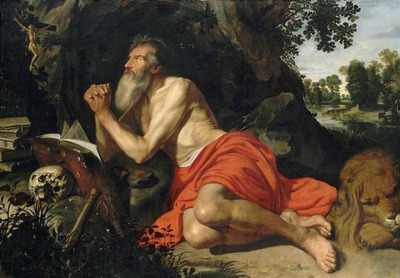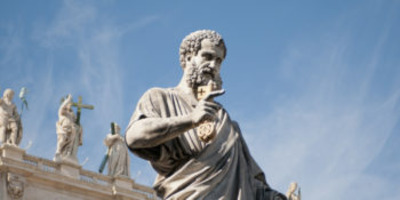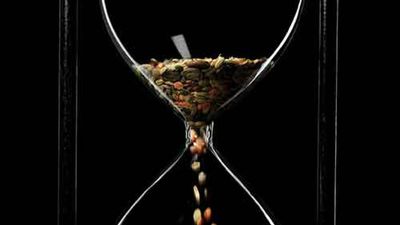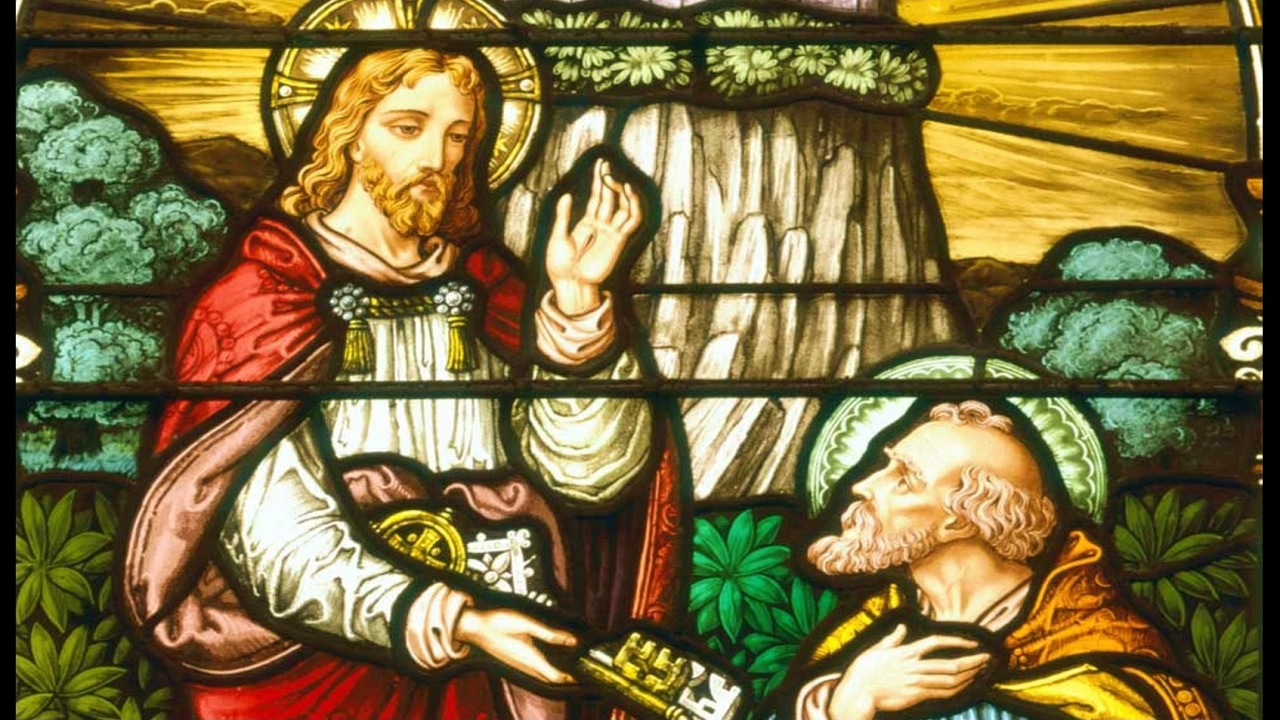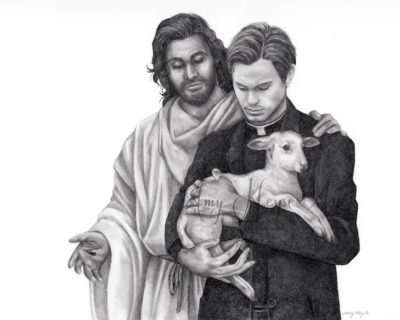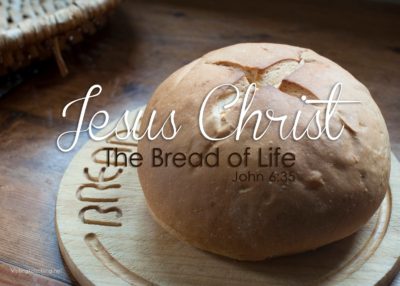August 27, 2023
|by N W
|
0 Comments
|
Deacon Mark, Holy Spirit, Pentecost, Self-Reflection, Strength
Twenty-first Sunday in Ordinary Time
August 27, 2023 — Year A
Readings: Is 22:19-23 / Ps 138 / Rom 11:33-36 / Mt 16:13-20
by Rev. Mr. Mark De La Hunt, Permanent Deacon
Thank you, Jesus, for calling Simon to be the Rock upon which the Church would be built! Jesus called him this before Simon had gained Christian courage or fortitude at Pentecost. He called him the Rock knowing that just moments later He would chastise him, saying, “Get behind me Satan.” He called him the Rock while knowing Simon would one day deny Him three times when He needed Simon the most.
Hang on to that thought a moment; we will come back to it in the second half of this homily. But now, let’s use a powerful prayer-centering technique from St. Ignatius of Loyola and place ourselves in the gospel scene. This is a time for you to use your imagination in a holy way that God intended. Once you have the image in your mind, go back to it whenever your mind wanders. It will help you stay centered. You can do this any time you pray with scripture.
Jesus and the twelve were in Caesarea Philippi, a mostly Gentile area with a temple to the ancient Greek god, Pan. There is a large spring there, which helps form the headwaters of the Jordan river. The spring makes the area lush with greenery. The area is mountainous with brown, grey, and orange-streaked rock all around.
Imagine Jesus and the twelve and you stopping underneath the shade of some trees and sitting on some of those rocks common to that area. There is a breeze cooling us off after our long walk from Galilee. Jesus sits on the largest of the rocks and begins to speak to us. Place yourself in this scene next to a disciple, except Peter. If your mind wanders, recall this scene and where you are sitting.
Jesus asks, “Who do people think I am?” We have all heard different things. Then He asks, “But who do you say that I am?” Before any of us can think it through, Simon says, “You are the Messiah, the son of the living God.” Jesus tells him that neither his intellect nor that of others came up with that answer, “[B]ut it was revealed to you by my heavenly Father.” And then Jesus stuns us who know Simon’s weaknesses, saying, “I say to you, you are Peter, and upon this rock I will build my Church…I will give you the keys to the kingdom of heaven.”
You lean over to the disciple you sat next to and ask, “Why did Jesus call Simon by the name Peter?” He replies, “When God changes a person’s name it is because He is giving them a new mission and a new authority. God did this with Abraham and Sarah who became the father and mother of the nations.” You suddenly realize God did this with Peter who becomes the first Pope. Pope is Latin for papa or father; Peter is to be the Father of the Church to which all nations belong (Cavins Session 15).
You ask the disciple, “What does it mean that Jesus gave Peter the keys to the kingdom of heaven and that what he binds and loosens will be done in heaven too?” The disciple lightheartedly ribs you, saying, “You should have paid more attention to the first reading from Isaiah 22,” and he winks at you. He goes on, “Jesus was using the same language used by Isaiah. In Isaiah, a royal steward, Shebna, is removed from power and the keys were given to Eliakim. Stewards were the most powerful person in Israel under the king (Mitch_Sri 209).”
You tell him, “I learned in Adult Faith Formation that the power to rule in the king’s absence is denoted by keys that represent the office, not the person, and therefore this power or office can be handed down to successors (Cavins). There are some in my time who say that Peter had primacy among the twelve, but that it ended when he was martyred. They are wrong. The bible and historical records prove them so.”
The disciple asks you, “In your time, do you know what authority Jesus gave Peter?” You Google Catechism 553 and read to him while he looks curiously over your shoulder at the cell phone. “The keys are a symbol of his power to open the gates of heaven to men; ‘to absolve sins, to pronounce doctrinal judgements, and to make disciplinary decisions in the Church.’” Not to be outdone by a machine, the disciple one ups Google and adds, “Jesus was using an ancient Jewish idiom or figure of speech of binding and loosing whereby rabbis exercised teaching and juridical authority (Mitch_Sri 211).
You tell him, “I heard in Fr. Mike Schmitz’s Catechism in a Year podcast that the authority of the pope and the college of bishops that we call the magisterium is vitally important to our faith. First, because authority must exist if we are to learn to be obedient like our Master, the one sitting on that tall rock over there, of Whom it was said, “Son though He was, He learned obedience from what He suffered and, once made perfect, He became the source of eternal salvation for all who obey Him (Heb 5:8-10).” The disciple animatedly adds, “That is why we must teach our children to be obedient. We cannot be their buddy all the time. If they do not learn to obey their earthly mother and father, how will they learn to obey their heavenly Father through the Church?”
You emphatically agree, mentioning that, “Obedience to the Church is important to ensure the teaching of Jesus is not distorted by a constantly changing worldly culture or our own passions or brokenness. For example, there are Christians who now believe baptism is not necessary for salvation despite Peter’s writing later that, “[B]aptism now saves you (1 Pt 3:21).” End of the scene. Now let’s shift from the theology of today’s gospel to its spiritual meaning for our lives.
Recall that at the beginning of the homily I thanked Jesus for selecting Simon as head of the Church. Here is why. Prior to his being confirmed in the Spirit at Pentecost, he would sink in the water for he had little faith. He would tempt Jesus to avoid His Passion, prompting Jesus to say those words I mentioned earlier, “Get behind me Satan.” In the Garden of Gethsemane, Peter would fall asleep multiple times while Jesus prayed alone in agony. While Jesus was on trial, Peter denied his friendship with Him three times. Despite knowing all this would take place, Jesus called him “the rock” before Pentecost.
So here is the question we all must answer, “Where is Jesus calling you to be a rock, but you resist His call because you feel unworthy, inadequate, ignorant, weak, too busy, too old, or too young?”
We know our past and our weakness almost as well as Jesus does, but we do not know as well as He does our strength, and especially not how strong we will be in the future by His grace. When He calls you to be a rock for a friend, for your spouse, for your children, for your students or patients or customers, for the poor, or for this wonderful parish, you can trust He knows you better than you know yourself.
What about when you fail after He calls you to be a rock for someone or something? Again, Peter shows us the way. In his fear and confusion after Jesus’ arrest, he continued to follow Jesus as best he could, albeit at a distance. By doing so, when Peter hit “rock bottom” (pun intended), denying Jesus three times, he was still near enough to Jesus to receive His saving grace, His divine glance. Across the high priest’s courtyard, Peter saw how Jesus looked at him and the healing and conversion of heart began with Peter’s holy sorrow falling as tears.
When you feel the frustration and hopelessness of your repeated failures to do God’s will or the confusion from being deep in darkness and despair from the natural evil of serious illness or the death of a loved one, or addiction, or the uncertainty of a new season in life like retirement, keep following Jesus. We do that by following Him in prayer, adoration, Confession, and Holy Communion. In those moments, even if we are not feeling strong in faith, we are close enough to see how He looks at us.
His glance, His gaze starts the healing and strengthening that enables us to fully receive the grace of our Pentecost, Confirmation. And this awakening to the power of the Holy Spirit within us transforms us from being unstable in doubt to being a rock in faith. But we still must move and act.
Here is my personal testimony to this truth, and this is for the glory of God. When I was six years old, Jesus called me a rock, if you will, in the happy moment of my first Holy Communion when I was asked to read one of the readings. It meant a lot to me at that time in my life. But then life happened. My dad lost his way, which led to my losing my way. I didn’t go to Mass or pray or think about God during my teenage years. Yes, Jesus brought me back to the Church through marriage, but I still was filled with self-doubt, worsened by sin and the baggage from those years, without an awareness of Him.
Fast forward to 2016, before I began the process of becoming a deacon, Jesus asked me to be a rock for my brother, Kevin, who was dying of cancer in home hospice and who was estranged from the Church. I had no medical training and no hospice experience. I tended to lose control of my emotions when those around me were experiencing strong emotions. Furthermore, I was the baby of my family, the youngest of five.
Through unmerited grace, I found the courage to fly to New Orleans to care for Kevin. As it turned out, his condition was direr than the doctors thought. The six weeks of life they thought he would have were only to be one. Throughout that week, in a somewhat surreal way, I was pondering the inner strength and joy I was experiencing. And I was quietly amazed that everyone turned to me, the normally overly emotional baby of the family, for strength and hope when they were overcome by fear and sadness.
A day or two after Kevin died, as we were in the midst of funeral planning, I received a text from my brother-in-law. He is a thinker, a cardiologist, so his opinions are something you pay attention to. I’ll never forget his few short words, which, looking back on it, were surely those of Christ. “Mark, you are the rock of your family.”
So again, I encourage you to rethink whatever person or cause or need for which Jesus has asked you to be a rock. And in a few minutes, before you come forward for Holy Communion, look for that divine glance as Father elevates Jesus before us and pray with a renewed faith, “Lord, I am not worthy that you should enter under my roof, but only say the word and my soul shall be healed.” And maybe add in the quiet of your heart, “I will be a rock for whomever and whatever as you wish Lord.” St. Peter, once weak, but now the rock, pray for us. Amen.
Citations
The Holy Bible, Revised Standard Version, Second Catholic Edition. Ascension Publishing 2018.
Curtis Mitch & Edward Sri. Catholic Commentary on Sacred Scripture, The Gospel of Matthew. Baker Academic 2010.
Jeff Cavins & Sarah Christmyer. Matthew – The King and His Kingdom. Ascension Press 2011.
Fr. Mike Schmitz. Catechism in a Year. Podcast on Hallow App 2023.
KEEP READING
 540-586-8988
540-586-8988 



